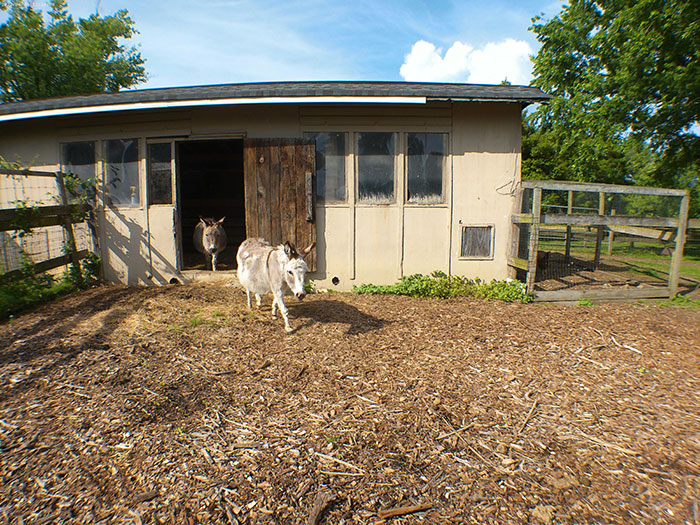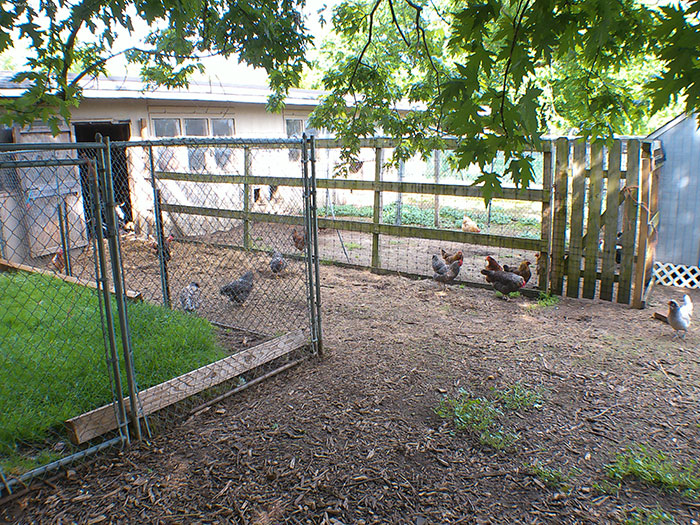
HOWELL – It is 8 p.m. in the Howell municipal building, and the offices are silent. Tucked away on the second floor and seated around a long table inside a tiny conference room, one branch of Howell’s government is still working.
The Howell Farmers Advisory Committee (F.A.C.) pours over the submitted plans of would-be developers, searching for potential violations in municipal codes, especially regarding buffer zones. When a potential violation is found, notations are made and sent for further review by the township’s Planning Board.
The Committee meets once a month and exists for one reason only: to aid and fight on behalf of the farmers in the township. Calling the conference room in which they meet a war room is an apt comparison, because the F.A.C. is involved in a battle to save the township’s disappearing farmland.

When fully staffed, the Council consists of seven members that look over the shoulders of planners and developers to ensure that none of the site plans infringe on one of Howell’s remaining farms. In addition, they will also look to provide answers for farmers who need assistance, referring them to local officials or resources within the state to help them maintain their farms.
“During this time, during COVID, we weren’t able to go out and visit farms,” says Leslie Chaillet, Secretary of the F.A.C. “However, going forward, as [with] those plans that we received, we have the right on the Committee to go out and survey the lands, and look to see if there’s farmland buffers, et cetera.” Chaillet, who owns and operates a small farm with her husband, has been an F.A.C. member for a little over a year.
Under township law chapter 244-1, Howell has a “Right to Farm Ordinance” which provides farms with various types of protection and ensures that the pursuit of agriculture is permitted on every lot within the 64 square miles of the town.
But protecting those lands can sometimes be difficult to enforce, because not every field that grows crops necessarily qualifies as a “farm.” Since they do not need to report to Howell for any type of farm business certification, the township does not have a definitive list of farmers within its boundaries.
Because the landowners must meet a specific set of criteria, Howell’s tax records will only formally recognize qualified farms (or Q-Farms) as true “farms.” The stipulations under which farms may qualify are mostly based on active acreage and income generated, whether the farm raises crops or livestock.
But the number of farms in the township is declining, and the statistics are heartbreaking. From 2007 until 2017, Howell Township lost 162 farms, and the current economic climate does not bode well for that trend reversing any time soon.
The continued loss of farmland reduces open space, contributes to climate change, and makes the population more dependent on imported produce. If the pandemic and the war between Russia and Ukraine have taught Americans anything, it’s that supply chain economics is more precarious than anyone ever imagined.

In addition, while many residents will lament the sale of farmland to developers who construct huge housing developments, the explosion of warehouses in towns like Howell may be more harmful than housing. While housing developments have lawns and backyards that soak up precipitation, new evidence suggests that warehouses damage the environment by contributing to increased flooding. Due to the impervious nature of the building itself, as well as the parking lots associated with those structures, the increased surface runoff tests the limits of existing storm sewers that results in more frequent and ever-expanding flooding.
But while some farms under five acres in the township may be classified as “commercial,” due to their lower level of income they will not meet the criteria as Q-Farms set forth by the State of New Jersey. Consequently, they are not eligible for tax breaks, grants, and other programs that can aid farmers in keeping their land and livelihood going.
“It’s important for our community to support local farms and young people who aspire to be next-generation farmers,” says Joe Simmons, owner of the Springstone Farm. While Springstone meets the fiscal requirement to qualify as a “commercial” farm in Howell through the sale of honey and brown eggs, it does not qualify as a Q-Farm. To supplement, their website also accepts donations so that they can maintain the numerous rescue animals that now call the farm home.
But for many farms in the town, the profit margins are razor thin. Rising fuel and labor rates have hit farmers especially hard, while the costs of the supplies they need to run their businesses also climb.
The lure of convenience has conditioned consumers to buy vegetables in supermarkets or flowers from large chain stores, both of which pose stiff competition for farmers who must constantly search for new ways to meet their mounting financial obligations.

“You can’t just be doing one thing anymore,” says Sharon Patterson, co-owner of the Patterson Family Farm in Howell. “You have to have your thumb in a little bit of everything in order to make it. With everybody selling flowers, like your big box stores, you just can’t do it. So, we started doing a little bit of landscaping here and there, and that’s just not enough to keep it going with the taxes and the bills and everything mounting up. Just one thing doesn’t do it anymore.”
The name Patterson is synonymous with farming in Howell, and the family has maintained a farm in the township since 1792. Like their father Don Patterson (who also served on the F.A.C.) before them, Sharon and her brother Alan now work the 70-acre farm growing flowers in five greenhouses, along with corn, Christmas trees and hay. They have even taken to making their property available by opening up the “Patterson Family Barn,” which serves as a rustic venue for parties, events, and weddings in order to create a new revenue stream for the farm.

Finding new revenue streams to keep farms afloat and viable is the mission of the “Grown in Monmouth” program which aids those in the agricultural community identify potential new markets and helps connect growers with consumers. Still other local farmers have chosen to take advantage of a website called NJLandLink.org, which matches New Jersey farmers willing to lease their land to individuals who are willing to farm it.
In addition to local farmstands that dot the Howell landscape, the township runs the Farmers Market from May 1 through October 30 right in the parking lot of the Municipal Building every Sunday from 9 a.m. to 2 p.m. But the message to those who want to see farming continue in Howell is clear: purchase produce directly from the source.

“I think the main thing just comes down to supporting [farmers] and recognizing that we’re here,” concludes Patterson. “It’s not always cheaper but it’s, a lot of times, a better quality.” But the quality obtained by supporting local farmers doesn’t only pertain to the produce grown, but the community itself.






